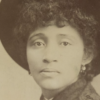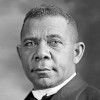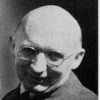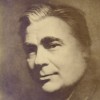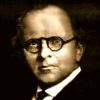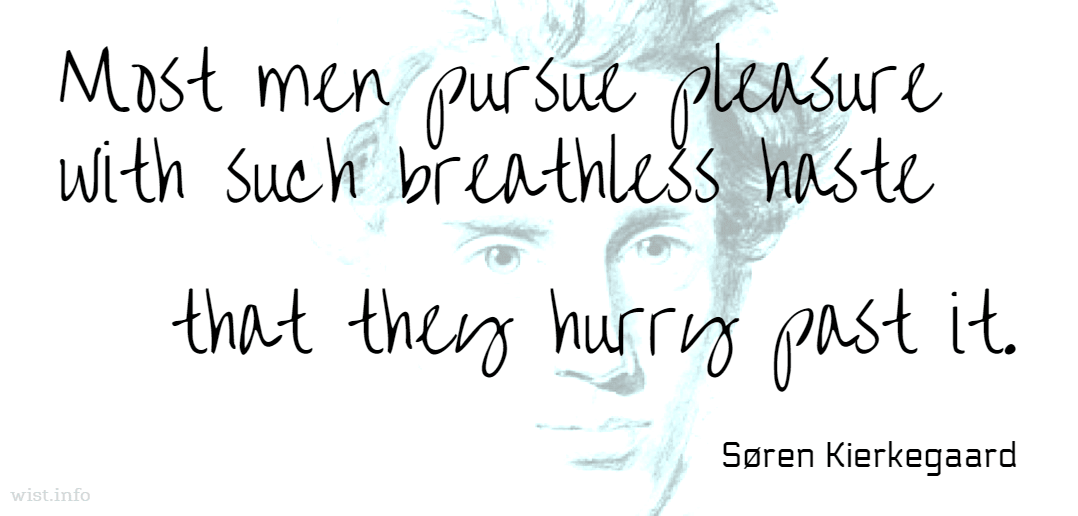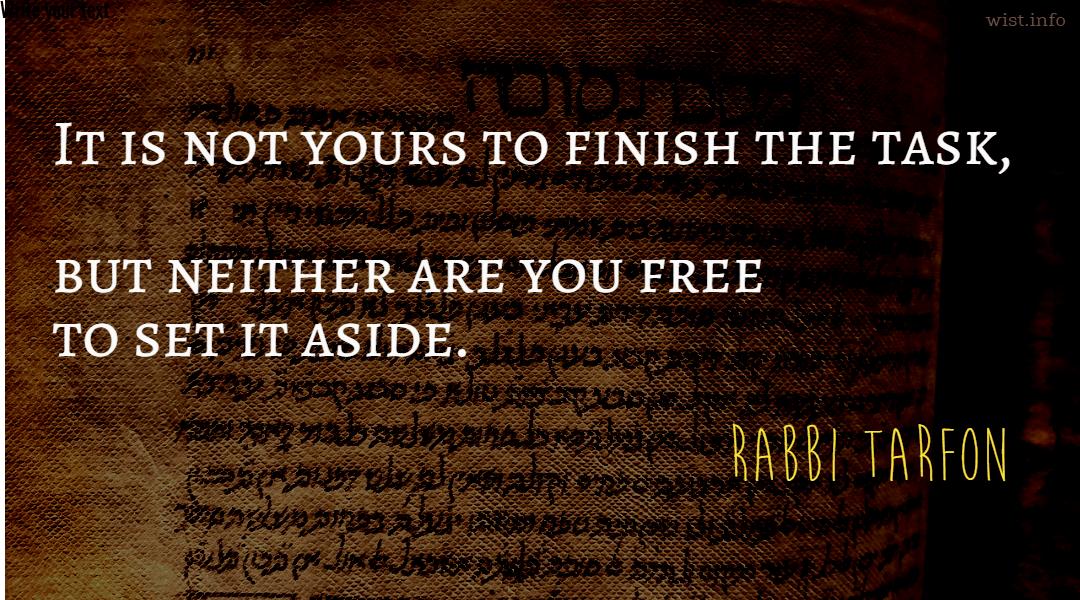Housekeeping ain’t no joke.
Louisa May Alcott (1832-1888) American writer
Little Women, Part 1, ch. 11 (1868)
(Source)
Labeled as a saying of the family maid and cook, Hannah. The girls recognize its truth as they take over the housekeeping for the "ailing" Mrs. Marsh.
Quotations about:
labor
Note not all quotations have been tagged, so Search may find additional quotes on this topic.
Indeed, the labor of keeping house is labor in its most naked state, for labor is toil that never finishes, toil that has to be begun again the moment it is completed, toil that is destroyed and consumed by the life process.
Mary McCarthy (1912-1989) American author, critic, political activist
“The Vita Activa,” The New Yorker (1958-10)
(Source)
A review of Hanna Arendt, The Human Condition (1958). Collected in On the Contrary: Articles of Belief, 1946–1961, Part 1 (1961).
Man is so made that he can only find relaxation from one kind of labor by taking up another.
Anatole France (1844-1924) French poet, journalist, novelist, Nobel Laureate [pseud. of Jaques-Anatole-François Thibault]
The Crime of Sylvestre Bonnard, Part 2, ch. 4 “The Little Saint-George,” “June 3” (1881)
(Source)
PRINCE: In time the savage bull doth bear the yoke.
BENEDICK The savage bull may, but if ever the sensible Benedick bear it, pluck off the bull’s horns and set them in my forehead, and let me be vilely painted, and in such great letters as they write “Here is good horse to hire” let them signify under my sign “Here you may see Benedick the married man.”
William Shakespeare (1564-1616) English dramatist and poet
Much Ado About Nothing, Act 1, sc. 1, l. 256ff (1.1.256-262) (1598)
(Source)
Why is it that we remember with effort but forget without effort? That we learn with effort but stay ignorant without effort? That we are active with effort, and lazy without effort?
[Quid est enim, quod cum labore meminimus, sine labore obliuiscimur; cum labore discimus, sine labore nescimus; cum labore strenui, sine labore inertes sumus?]Augustine of Hippo (354-430) Christian church father, philosopher, saint [b. Aurelius Augustinus]
City of God [De Civitate Dei], Book 22, ch. 22 (22.22) (AD 412-416) [tr. Green (Loeb) (1972)]
(Source)
(Source (Latin)). Alternate translations:
What is our labour to remember things, our labour to learn, and our ignorance without this labour? our agility got by toil, and our dullness if we neglect it?
[tr. Healey (1610)]
For why is it that we remember with difficulty, and without difficulty forget? learn with difficulty, and without difficulty remain ignorant? are diligent with difficulty, and without difficulty are indolent?
[tr. Dods (1871)]
How difficult it is to remember, how easy to forget; how hard to learn and how easy to be ignorant; how difficult to make an effort and how easy to be lazy.
[tr. Walsh/Honan (1954)]
How is it that what we learn with toil we forget with ease? that it is hard to learn, but easy to be in ignorance? That activity goes against the grain, while indolence is second nature?
[tr. Bettenson (1972)]
Why is it that we remember with such difficulty, but forget so easily? Why is it that we learn with such difficulty, yet so easily remain ignorant? Why is it that we are vigorous with such difficulty, yet so easily inert?
[tr. Dyson (1998)]
The world runs on from one folly to another; and the man who, solely from regard to the opinion of others, and without any wish or necessity of his own, toils after gold, honour, or any other phantom, is no better than a fool.
[Alles in der Welt läuft doch auf eine Lumperei hinaus, und ein Mensch, der um anderer willen, ohne daß es seine eigene Leidenschaft, sein eigenes Bedürfnis ist, sich um Geld oder Ehre oder sonst was abarbeitet, ist immer ein Tor.]
Johann Wolfgang von Goethe (1749-1832) German poet, statesman, scientist
Die Leiden des Jungen Werthers [The Sorrows of Young Werther], Book 1, “July 20” (1774) [tr. Boylen (1854)]
(Source)
(Source (German)). Alternate translation:
A man who works at another’s will, not for his own passion or his own need, but for money or honor, is always a fool.
[tr. 1779]
One of the saddest things is that the only thing that a man can do for eight hours a day, day after day, is work. You can’t eat eight hours a day nor drink for eight hours a day nor make love for eight hours — all you can do for eight hours is work. Which is the reason why man makes himself and everybody else so miserable and unhappy.
William Faulkner (1897-1962) American novelist
“The Art of Fiction,” Interview by Jean Stein, Paris Review #12 (Spring 1956)
(Source)
Genius begins great works; but labour alone finishes them.
[Le génie commence les beaux ouvrages, mais le travail seul les achève.]
Joseph Joubert (1754-1824) French moralist, philosopher, essayist, poet
Pensées [Thoughts], ch. 23 “Des Qualités de l’Écrivain et des Compositions Littéraires [On Writers and Literature]” ¶ 52 (1850 ed.) [tr. Lyttelton (1899), ch. 22, ¶ 19]
(Source)
(Source (French)). Alternate translations:
Genius begins beautiful works, but only labor finishes them.
[tr. Calvert (1866), ch. 8]
Genius begins great works; labour alone finishes them.
[tr. Attwell (1896), ¶ 335]
Beautiful works. Genius beings them, but labor alone finishes them.
[tr. Auster (1983)], 1801]
Machines are a great thing, but if one replaces a hundred men, it don’t buy anything, it don’t eat anything, while the hundred men spend theirs back for food, shelter, and hundreds of various commodities for them and their families.
Art followed hard on art. Toil triumphed over every obstacle, unrelenting Toil, and Want that pinches when life is hard.
[Tum variae venere artes. Labor omnia vicit
inprobus et duris urgens in rebus egestas.]Virgil (70-19 BC) Roman poet [b. Publius Vergilius Maro; also Vergil]
Georgics [Georgica], Book 1, l. 145ff (1.145) (29 BC) [tr. Fairclough (Loeb) (1916)]
(Source)
On humanity developing the arts and sciences in response to Jove making life difficult.
Compare this to Labor omnia vincit ("Work conquers all"), Oklahoma's state motto.
(Source (Latin)). Alternate translations:
Then came strange arts, fierce labor all subdues.
Inforc'd by bold Necessity, and Want.
[tr. Ogilby (1649)]
And various Arts in order did succeed,
(What cannot endless Labour urg'd by need?)
[tr. Dryden (1709), ll. 217-218]
Thus by long labour arts to arts succeed,
Such is the force of all-compelling need.
[tr. Nevile (1767)]
Thus rous'd by varied wants new arts arose,
And strenuous Labour triumph'd at its close.
[tr. Sotheby (1800)]
Then various arts ensued. Incessant labour and want, in hardships pressing, surmounted every obstacle.
[tr. Davidson (1854)]
Then came the various arts: oh, grand success
Of reckless toil and resolute distress!
[tr. Blackmore (1871)]
Then came the various arts of life. So toil, relentless toil, and the pressure of want in adversity, conquered the world. [tr. Wilkins (1873)]
Then divers arts arose; toil conquered all,
Remorseless toil, and poverty's shrewd push
In times of hardship.
[tr. Rhoades (1881)]
Thus stern Necessity inventive tried
Fresh arts, which life’s increasing wants supplied.
[tr. King (1882)]
Then various arts followed. Unwearying labor overcame every difficulty, and want spurring men on in times of hardship.
[tr. Bryce (1897)]
Then arts many in sort; nothing but yielded to unrelenting toil and the hard pressure of poverty.
[tr. Mackail (1899)]
Then divers arts arose; toil conquered all,
Remorseless toil, and poverty's shrewd push
In times of hardship.
[tr. Greenough (1900)]
Then followed manifold arts: unflinching toil ever one
Triumphs: in hardship's school stern need still drave men on.
[tr. Way (1912)]
Then later times
Brought forth of other arts the varied skill.
Work conquered all, relentless, obstinate,
While poverty and hardship urged it on.
[tr. Williams (1915)]
Then numerous arts arose. Yes, unremitting labour
And harsh necessity's hand will master anything.
[tr. Day-Lewis (1940)]
Then followed all the civilizing arts:
Hard labor conquered all, and pinching need.
[tr. Bovie (1956)]
Then all kinds of skills came into being. Toil has overcome all things, runious toil and need, pressing in harsh circumstances.
[tr. Miles (1980)]
And last the various arts.
Toil mastered everything, relentless toil
And the pressure of pinching poverty.
[tr. Wilkinson (1982)]
Then came the various arts. Hard labour conquered all,
and poverty’s oppression in harsh times.
[tr. Kline (2001)] https://www.poetryintranslation.com/PITBR/Latin/VirgilGeorgicsI.php#anchor_Toc533589845:~:text=then%20came%20the,in%20harsh%20times.
Then came the arts in many guises. Relentless work conquered
all difficulties -- work and urgent need when times were hard.
[tr. Lembke (2004)]
All this before the knowledge and know-how which ensued. Hard work prevailed, hard work and pressing poverty.
[tr. Fallon (2006)]
And then myriad arts. Toil subdued the earth, relentless toil, and the prick of dearth in hardship.
[tr. Johnson (2009)]
Then followed other arts; and everything
Was toil, relentless toil, urged on by need.
[tr. Ferry (2015)]
The Mediator between Brain and Hands must be the Heart.
[Der Mittler zwischen Hirn und Händen muss das Herz sein.]
Thea von Harbou (1888-1954) German screenwriter, novelist, film director, actress
Metropolis, ch. 5 [Maria] (1925) [tr. (1927)]
(Source)
The novel was written to be the basis for the film by Von Harbou's husband, Fritz Lang. She also collaborated with him on the script. The movie began shooting before the novel was published.
In talking with the growingly restless workers of the city, Maria adds, shortly after the above line:
One will come, who will speak for you -- who will be the mediator between you, the Hands, and the man whose Brain and Will are over you all.
Von Harbau also included an epigraph at the beginning of the novel, which concludes (with a slightly different translation): "The mediator between brain and muscle must be the Heart."
Hard work is a prison sentence only if it does not have meaning. Once it does, it becomes the kind of thing that makes you grab your wife around the waist and dance a jig.
Malcolm Gladwell (b. 1963) Anglo-Canadian journalist, author, public speaker
Outliers: The Story of Success, Part 1, ch. 5, sec. 10 (2008)
(Source)
By Art and Nature, if thou well recall
How Genesis begins, man ought to get
His bread, and make prosperity for all.
But the usurer contrives a third way yet,
And in herself and in her follower, Art,
Scorns Nature, for his hope is elsewhere set.[Da queste due, se tu ti rechi a mente
lo Genesì dal principio, convene
prender sua vita e avanzar la gente;
e perché l’usuriere altra via tene,
per sé natura e per la sua seguace
dispregia, poi ch’in altro pon la spene.]Dante Alighieri (1265-1321) Italian poet
The Divine Comedy [Divina Commedia], Book 1 “Inferno,” Canto 11, l. 106ff (11.106-111) [Virgil] (1309) [tr. Sayers (1949)]
(Source)
In Genesis (Gen. 2:15, 3:17-19), God ordains humanity is to survive gathering plants and resources (Nature) and through toil and "the sweat of his face" (Art or Industry) . Usurers are deemed evil because they gain wealth from interest on money-lending (or, by extension, any financial investments), producing money from money, not from productive work. They are considered in Dante's scheme as bad as blasphemers and perverts, and worse sinners than murderers or suicides. See commentary from Sayers and Durling.
(Source (Italian)). Alternate translations:
And if you recollect
Your Genesis, you'll know that from these two
Mankind should Life, Tillage the Earth receive.
But, because Us'ry takes another way,
Despising Nature and your daughter Art,
It God displeases, and incurs his wrath.
[tr. Rogers (1782), l. 101ff]
But from her hallow'd path the Miser strays,
Who lets pale A'rice warp his sordid ways,
Invet'rate foe to Nature's simple lore,
Beneath his influence grows the barren gold.
He speaks, and lo! the parent sums unfold
In monstrous births, a misbegotten store.
[tr. Boyd (1802), st. 16]
These two, if thou recall to mind
Creation’s holy book, from the beginning
Were the right source of life and excellence
To human kind. But in another path
The usurer walks; and Nature in herself
And in her follower thus he sets at nought,
Placing elsewhere his hope.
[tr. Cary (1814)]
Both these to man, if thou refresh thy mind
In Genesis' early writ, the Word ordains
His life to foster, and advance his kind.
But other way takes Usance to his gains,
And, choosing other hope, a scornful war
With Nature and her handmaid Art maintains.
[tr. Dayman (1843)]
By these two, if you recallest to thy memory Genesis at the beginning, it behoves man to gain his bread and [to prosper].
And because the usurer takes another way, he contemns Nature in herself and in her follower, placing elsewhere his hope.
[tr. Carlyle (1849)]
From these two, if right considered in the mind,
From first of Genesis the truth receive,
Life and advancement to the nations gave.
But usury has ta'en another way,
Despising nature and her handmaid Art,
Far other hopes his light of life impart.
[tr. Bannerman (1850)]
From these two, then, if thou in mem'ry hold'st
The earlier Genesis, it is decreed
That life must spring, and man's increase must come.
But then the usurer treads another path;
Nature and her attendant both he scorns,
Since in another means he places hope.
[tr. Johnston (1867)]
From these two, if thou bringest to thy mind
Genesis at the beginning, it behoves
Mankind to gain their life and to advance;
And since the usurer takes another way,
Nature herself and in her follower
Disdains he, for elsewhere he puts his hope.
[tr. Longfellow (1867)]
From these two, if thou bring to thy mind Genesis, towards the beginning, it behoves folk to take their life, and to prosper. And because the usurer holds another course, he despises Nature both for herself and for her follower; because he places his hope in another thing.
[tr. Butler (1885)]
From Art and Nature, if thou bring'st to mind
The verse of Genesis, 'tis doomed alone
That man should live and carry on his kind.
And since to usurers other ways are known,
Both Nature and her follower stand confest
Outraged by those whose trust is elsewhere shown.
[tr. Minchin (1885)]
By means of these two, if thou bringest to mind Genesis at its beginning, it behoves mankind to obtain their livelihood and to thrive. But because the usurer takes another course, he despises Nature in herself, and in her follower, since upon other thing he sets his hope.
[tr. Norton (1892)]
By these two, if thou recallest to thy mind an early page in Genesis, doth it behove mankind to win their means of life, and to excel. And for that the usurer goeth another way, he slighteth nature both in herself and follower, putting his trust elsewhere.
[tr. Sullivan (1893)]
From these two, if thou bring' st to recollection
Genesis at its opening, it must needs be
That folk do take their living and make progress.
And, since the usurer keeps another pathway,
Nature, both for herself and for her daughter,
Contemns he, since his hope elsewhere he places.
[tr. Griffith (1908)]
By these two, if thou recall to mind Genesis near the beginning, it behoves mankind to gain their livelihood and their advancement, and because the usurer takes another way he despises nature both in herself and in her follower, setting his hope elsewhere.
[tr. Sinclair (1939)]
By these two, if thy memory Genesis
Recalls, and its beginning, man hath need
To gain his bread and foster earthly bliss.
But the usurer, since he will not thus proceed,
Flouts Nature's follower and herself also,
Setting his wealth another way to breed.
[tr. Binyon (1943)]
By this, recalling the Old Testament
near the beginning of Genesis, you will see
that in the will of Providence, man was meant
to labor and to prosper. But usurers,
by seeking their increase in other ways,
scorn Nature in herself and her followers.
[tr. Ciardi (1954)]
By these two, if you remember Genesis at the beginning, it behooves man to gain his bread and to prosper. But because the usurer takes another way, he contemns Nature in herself and in her follower, for he puts his hope elsewhere.
[tr. Singleton (1970)]
From Art and Nature man was meant to take
his daily bread to live -- if you recall
the book of Genesis near the beginning;
but the usurer, adopting another means,
scorns Nature in herself and in her pupil,
Art -- he invests his hope in something else.
[tr. Musa (1971)]
From these two, art and nature, it is fitting,
if you recall how Genesis begins,
for men to make their way, to gain their living;
and since the usurer prefers another
pathway, he scorns both nature in herself
and art, her follower; his hope is elsewhere.
[tr. Mandelbaum (1980)]
From these two, if you recall to mind
The beginning of Genesis, it is proper for man
To win his bread and to advance his race:
And because the usurer takes another way,
Treating nature and what follows from her
Contemptuously, he puts his hopes elsewhere.
[tr. Sisson (1981)]
By these two, man should thrive and gain his bread --
If you remember Genesis -- from the start
But since the usurer takes a different way,
He contemns Nature both in her own sort
And in her follower as well, while he
Chooses to invest his hope another place.
[tr. Pinsky (1994)]
From these two, if you bring to mind the beginning of Genesis, we must draw our life and advance our people. and because the usurer holds another way, he scorns Nature in herself and in her follower, since he puts his hope in something else.
[tr. Durling (1996)]
By these two, art and nature, man must earn his bread and flourish, if you recall to mind Genesis, near its beginning.
Because the usurer holds to another course, he denies Nature, in herself, and in that which follows her ways, putting his hopes elsewhere.
[tr. Kline (2002)]
From these two principles -- if you recall
the opening lines of Genesis -- we're bound to draw
our living strength and multiply our people.
But usurers adopt a different course.
They place their hopes in other things, and thus
make mock of Nature's self and her close kin.
[tr. Kirkpatrick (2006)]
By toil and nature, if you remember Genesis,
near the beginning, it is man's lot
to earn his bread and prosper.
The usurer, who takes another path,
scorns nature in herself and in her follower,
and elsewhere sets his hopes.
[tr. Hollander/Hollander (2007)]
Nature and human labor -- as Genesis teaches
In its very first pages -- combine to let man live
And thereby take his people forward. But those leeches
Who practice usury abandon the given
Path for another, despising Nature's way
And her honest pupils: gold, not God, is their living.
[tr. Raffel (2010)]
By this twin element
Of nature's force and human effort -- see
The book of Genesis, near the beginning, where
Men are enjoined to earn their bread by sweat --
Humanity needs must accept its share
Of effort to advance. The trade in debt
Ignores that pact. His course set otherwise
The usurer holds nature in contempt
Both in herself and in her human guise,
Simply by how he holds himself exempt
And sets his hopes elsewhere.
[tr. James (2013), l. 112ff]
The three horrors of modern life — talk without meaning, desire without love, work without satisfaction.
Mignon McLaughlin (1913-1983) American journalist and author
The Neurotic’s Notebook, ch. 5 (1963)
(Source)
Worthy work carries with it the hope of pleasure in rest, the hope of the pleasure in our using what it makes, and the hope of pleasure in our daily creative skill. All other work but this is worthless; it is slaves’ work — mere toiling to live, that we may live to toil.
William Morris (1834-1896) British textile designer, writer, socialist activist
Signs of Change, ch. 6 (1888)
(Source)
Remind them that the sword still hangs upon the wall and the heart still beats within the man, and that that sword will be unsheathed again, if necessary, in defense of your rights. Given them to understand that you will not stand patiently by and see your hard earnings squandered by a luxuriating class of idlers. If the American manhood will arouse itself and speak to those fellows in plain language, not to be misunderstood, they can save themselves, their country and their children, from the fate of poverty which awaits them. Will you do it?
Lucy Parsons (1851-1942) American labor organizer, anarchist, orator [a.k.a. Lucy Gonzalez]
“Wage Slaves vs. Corporations,” The Liberator (24 Sep 1905)
(Source)
The avalanche of the Alps, which carries destruction in its gathering force, and whelms whole districts in its frozen shroud, acquired its tremendous force by UNION — the vast mass of cold destruction was accumulated flake by flake. Compare this figure yourselves — ye are the snow-flakes; gather then instruction from nature, single flakes form the avalanche, single grains of sand form mountains, single drops form the mighty ocean, and supply its resistless power!
(Other Authors and Sources)
Anonymous (“Jack Steadfast”), “To the Wealth Producers of Birmingham and of the Midland Counties,” Birmingham Journal (13 May 1837)
(Source)
Happiness is thought to imply leisure; for we toil in order that we may have leisure, as we make war in order that we may enjoy peace.
[δοκεῖ τε ἡ εὐδαιμονία ἐν τῇ σχολῇ εἶναι, ἀσχολούμεθα γὰρ ἵνα σχολάζωμεν καὶ πολεμοῦμεν ἵν᾽ εἰρήνην ἄγωμεν.]
Aristotle (384-322 BC) Greek philosopher
Nicomachean Ethics [Ἠθικὰ Νικομάχεια], Book 10, ch. 7 (10.7) / 1177b.4 (c. 325 BC) [tr. Peters (1893), 10.7.6]
(Source)
(Source (Greek)). Alternate translations:
Happiness is thought to stand in perfect rest; for we toil that we may rest, and war that we may be at peace.
[tr. Chase (1847), ch. 6]
It would seem that happiness is the very antithesis of a busy life, in that it is compatible with perfect leisures. And it is with such leisure in view that a busy life is always led, exactly as war is only waged for the sake of ultimate peace.
[tr. Williams (1869)]
The end of labor is to gain leisure.
[in Ballou, Treasury of Thought (1872)]
Happiness is thought to depend on leisure; for we are busy that we may have leisure, and make war that we may live in peace.
[tr. Ross (1908)]
Happiness is thought to involve leisure; for we do business in order that we may have leisure, and carry on war in order that we may have peace.
[tr. Rackham (1934)]
Happiness seems to reside in leisure, since we do unleisured things in order to be at leisure, and wage war in order to live in peace.
[tr. Reeve (1948)]
Happiness is thought to depend on leisure; for we toil for the sake of leisurely activity, and we are at war for the sake of peaceful activity.
[tr. Apostle (1975)]
Happiness seems to depend on leisure, because we work to have leisure, and wage war to live in peace.
[tr. Crisp (2000)]
[Because], happiness seems to reside in leisure, we labor [sacrifice leisure] so that we may have leisure.
[tr. @sentantiq (2018)]
Consequently, happiness is not found in amusement, for it would be also absurd to maintain that the end of man is amusement and that men work and suffer all their life for the sake of amusement. For, in short, we choose everything for the sake of something else, except happiness, since happiness is the end of a man. So to be serious and work hard for the sake of amusement appears foolish and very childish, but to amuse oneself for the sake of serious work seems, as Anacharsis put it, to be right; for amusement is like relaxation, and we need relaxation since we cannot keep on working hard continuously. Thus amusement is not the end, for it is chosen for the sake of serious activity.
Aristotle (384-322 BC) Greek philosopher
Nicomachean Ethics [Ἠθικὰ Νικομάχεια], Book 10, ch. 6, sec. 6 (10.6.6) / 1176b.28ff (c. 325 BC) [tr. Apostle (1975)]
(Source)
(Source (Greek)). Alternate translations:
Happiness then stands not in amusement; in fact the very notion is absurd of the End being amusement, and of one’s toiling and enduring hardness all one’s life long with a view to amusement: for everything in the world, so to speak, we choose with some further End in view, except Happiness, for that is the End comprehending all others. Now to take pains and to labour with a view to amusement is plainly foolish and very childish: but to amuse one’s self with a view to steady employment afterwards, as Anacharsis says, is thought to be right: for amusement is like rest, and men want rest because unable to labour continuously. Rest, therefore, is not an End, because it is adopted with a view to Working afterwards.
[tr. Chase (1847), ch. 5]
And, hence it follows, that happiness does not consist in mere amusement. For, it is inconceivable that amusement should be the end and consummation of everything, and that a man should endure a lifetime of labour and suffering, with nothing higher than amusement in view. And this would be the case, were happiness identical with mere amusement. For there is, indeed, nothing whatever upon earth which we do not choose for the sake of something else beyond itself, with the one exception of happiness -- happiness being the one end of all things els. Now, that all earnestness and toil should tend to no higher end than mere amusement, is a view of life which is worse than childish, and fit only for a fool. But the saying of Anacharsis, "play makes us fit for work," would seem to be well spoken; for it would seem that amusement is a species of rest, and that men stand in need of rest, inasmuch as continuous exertion is not possible. And, hence, rest cannot be an end in itself, inasmuch as it is only sought with view to subsequent action.
[tr. Williams (1869)]
Happiness then does not consist in amusement. It would be paradoxical to hold that the end of human life is amusement, and that we should toil and suffer all our life for the sake of amusing ourselves. For we may be said to desire all things as means to something else except indeed happiness, as happiness is the end or perfect state. It appears to be foolish and utterly childish to take serious trouble and pains for the sake of amusement. But to amuse oneself with a view to being serious seems to be right, as Anacharsis says; for amusement is a kind of relaxation, and it is because we cannot work for ever that we need relaxation. Relaxation then is not an end. We enjoy it as a means to activity.
[tr. Welldon (1892)]
Happiness, therefore, does not consist in amusement; and indeed it is absurd to suppose that the end is amusement, and that we toil and moil all our life long for the sake of amusing ourselves. We may say that we choose everything for the sake of something else, excepting only happiness; for it is the end. But to be serious and to labour for the sake of amusement seems silly and utterly childish; while to amuse ourselves in order that we may be serious, as Anacharsis says, seems to be right; for amusement is a sort of recreation, and we need recreation because we are unable to work continuously. Recreation, then, cannot be the end; for it is taken as a means to the exercise of our faculties.
[tr. Peters (1893), 10.6.6]
Happiness, therefore, does not lie in amusement; it would, indeed, be strange if the end were amusement, and one were to take trouble and suffer hardship all one's life in order to amuse oneself. For, in a word, everything that we choose we choose for the sake of something else -- except happiness, which is an end. Now to exert oneself and work for the sake of amusement seems silly and utterly childish. But to amuse oneself in order that one may exert oneself, as Anacharsis puts it, seems right; for amusement is a sort of relaxation, and we need relaxation because we cannot work continuously. Relaxation, then, is not an end; for it is taken for the sake of activity.
[tr. Ross (1908)]
It follows therefore that happiness is not to be found in amusements. Indeed it would be strange that amusement should be our End -- that we should toil and moil all our life long in order that we may amuse ourselves. For virtually every object we adopt is pursued as a means to something else, excepting happiness, which is an end in itself; to make amusement the object of our serious pursuits and our work seems foolish and childish to excess: Anacharsis' motto, Play in order that you may work, is felt to be the right rule. For amusement is a form of rest; but we need rest because we are not able to go on working without a break, and therefore it is not an end, since we take it as a means to further activity.
[tr. Rackham (1934)]
Hence happiness does not lie in amusement, since it would indeed be strange if the end were amusement and we did all the work we do and suffered evil all our live for the sake of amusing ourselves. For, in a word, we choose everything -- except happiness, since end it is -- for the sake of something else. But to engage in serious matters and to labor for the sake of amusement would evidently be silly and utterly childish. On the contrary, "amusing ourselves so as to engage in serious matters," as Anacharsis puts it, seems to be correct. For amusement is like relaxation, and it is because people cannot labor continuously that they need relaxation. End, then, relaxation is not, since it occurs for the sake of activity.
[tr. Reeve (1948)]
It follows that happiness does not consist in amusement. Indeed, it would be paradoxical if the end were amusement; if we toiled and suffered all our lives long to amuse ourselves. For we choose practically everything for the sake of something else, except happiness, because it is the end. To spend effort and toil for the sake of amusement seems silly and unduly childish; but on the other hand the maxim of Anacharsis, "Play to work harder," seems to be on the right lines, because amusement is a form of relaxation, and people need relaxation because they cannot exert themselves continuously. Therefore relaxation is not an end, because it is taken for the sake of activity.
[tr. Thomson/Tredennick (1976)]
Happiness, then, is not found in amusement, for it would be absurd if the end were amusement, and our lifelong efforts and sufferings aimed at amusing ourselves. For we choose practically everything for some other end -- except for happiness, since it is the end; but serious work and toil amed only at amusement appears stupid and excessively childish. Rather, it seems correct to amuse ourselves so that we can do something serous, as Anacharsis says; for amusement would seem to be relaxation, and it is because we cannot toil continuously that we require relaxation. Relaxation, then, is not the end, since we pursue it to prepare for activity.
[tr. Irwin/Fine (1995)]
Happiness, then, does not consist in amusement, because it would be absurd if our end were amusement, and we laboured and suffered all of our lives for the sake of amusing ourselves. For we choose virtually everything for the sake of something else, except happiness, since it is the end; but serious work and exertion for the sake of amusement is manifestly foolish and extremely childish. Rather, as Anacharsis puts it, what seems correct is amusing ourselves so that we can engage in some serious work, since amusement is like relaxation, and we need relaxation because we cannot continuously exert ourselves. Relaxation, then, is not an end, since it occurs for the sake of activity.
[tr. Crisp (2000)]
Our greatest danger is that in the great leap from slavery to freedom we may overlook the fact that the masses of us are to live by the productions of our hands, and fail to keep in mind that we shall prosper in proportion as we learn to dignify and glorify common labour and put brains and skill into the common occupations of life; shall prosper in proportion as we learn to draw the line between the superficial and the substantial, the ornamental gewgaws of life and the useful. No race can prosper till it learns that there is as much dignity in tilling a field as in writing a poem.
Booker T. Washington (1856-1915) American educator, writer
Speech, Cotton States and International Exposition, Atlanta (18 Nov 1895)
(Source)
Reprinted in his autobiography, Up from Slavery, ch. 14 "The Atlanta Exposition Address" (1907).
Not to oversee Workmen, is to leave them your Purse open.
Benjamin Franklin (1706-1790) American statesman, scientist, philosopher, aphorist
Poor Richard’s Almanack (Nov 1751)
(Source)
I sell my time to get enough money to buy it back.
James Richardson (b. 1950) American poet
Vectors: Aphorisms and Ten-Second Essays (2001) #151
(Source)
It was the fixation of businessmen that the W.P.A. did nothing but lean on shovels. I had an uncle who was particularly irritated at shovel-leaning. When he pooh-poohed my contention that shovel leaning was necessary, I bet him five dollars, which I didn’t have, that he couldn’t shovel sand for fifteen timed minutes without stopping. He said a man should give a good day’s work and grabbed a shovel. At the end of three minutes his face was red, at six he was staggering and before eight minutes were up his wife stopped him to save him from apoplexy. And he never mentioned shovel-leaning again. I’ve always been amused at the contention that brain work is harder than manual labor. I never knew a man to leave a desk for a muck-stick if he could avoid it.
One strain in Protestant thinking has always looked to economic life not just for its efficacy in producing goods and services but as a vast apparatus of moral discipline, of rewards for virtue and industry and punishments for vice and indolence.
Richard Hofstadter (1916-1970) American historian and intellectual
“Pseudo-Conservatism Revisited — 1965,” sec. 3 (1965)
(Source)
The evangelist was preaching “sin and redemption,” the infinite grace of God and His pardon for human frailty. He was very much in earnest, and he meant well, but Jurgis, as he listened, found his soul filled with hatred. What did he know about sin and suffering — with his smooth, black coat and his neatly starched collar, his body warm, and his belly full, and money in his pocket — and lecturing men who were struggling for their lives, men at the death grapple with the demon powers of hunger and cold! — This, of course, was unfair; but Jurgis felt that these men were out of touch with the life they discussed, that they were unfitted to solve its problems; nay, they themselves were part of the problem — they were part of the order established that was crushing men down and beating them! They were of the triumphant and insolent possessors; they had a hall, and a fire, and food and clothing and money, and so they might preach to hungry men, and the hungry men must be humble and listen! They were trying to save their souls — and who but a fool could fail to see that all that was the matter with their souls was that they had not been able to get a decent existence for their bodies?
Upton Sinclair (1878-1968) American writer, journalist, activist, politician
The Jungle, ch. 23 (1906)
(Source)
Meantime, heedless of all these things, the men upon the floor were going about their work. Neither squeals of hogs nor tears of visitors made any difference to them; one by one they hooked up the hogs, and one by one with a swift stroke they slit their throats. There was a long line of hogs, with squeals and lifeblood ebbing away together; until at last each started again, and vanished with a splash into a huge vat of boiling water.
It was all so very businesslike that one watched it fascinated. It was porkmaking by machinery, porkmaking by applied mathematics. And yet somehow the most matter-of-fact person could not help thinking of the hogs; they were so innocent, they came so very trustingly; and they were so very human in their protests — and so perfectly within their rights! They had done nothing to deserve it; and it was adding insult to injury, as the thing was done here, swinging them up in this cold-blooded, impersonal way, without a pretense of apology, without the homage of a tear. Now and then a visitor wept, to be sure; but this slaughtering machine ran on, visitors or no visitors. It was like some horrible crime committed in a dungeon, all unseen and unheeded, buried out of sight and of memory.
Upton Sinclair (1878-1968) American writer, journalist, activist, politician
The Jungle, ch. 3 (1906)
(Source)
The supposition is prevalent the world over that there would be no problems in production or service if only our production workers would do their jobs in the way that they were taught. Pleasant dreams. The workers are handicapped by the system, and the system belongs to the management.
W. Edwards Deming (1900-1993) American management consultant, educator
Out of the Crisis, ch. 3 (1982)
(Source)
If hard work is not another name for talent, it is the best possible substitute for it.
James A. Garfield (1831-1881) US President (1881), lawyer, lay preacher, educator
“College Education,” Speech, Western Reserve Eclectic Institute (Jun 1867)
(Source)
Work is the greatest thing in the world — so we should save some of it for to-morrow.
I intend to do what little one man can do to awaken the public conscience, and in the meantime I am not frightened by your menaces. I am not a giant physically; I shrink from pain and filth and vermin and foul air, like any other man of refinement; also, I freely admit, when I see a line of a hundred policemen with drawn revolvers flung across a street to keep anyone from coming onto private property to hear my feeble voice, I am somewhat disturbed in my nerves. But I have a conscience and a religious faith, and I know that our liberties were not won without suffering, and may be lost again through our cowardice. I intend to do my duty to my country.
Upton Sinclair (1878-1968) American writer, journalist, activist, politician
Letter to the Louis D. Oaks, Los Angeles Chief of Police (17 May 1923)
(Source)
Reprinted in his Autobiography (1962).
If I should labor through daylight and dark,
Consecrate, valorous, serious, true,
Then on the world I may blazon my mark;
And what if I don’t, and what if I do?
A rich man cannot enjoy a sound mind nor a sound body without exercise and abstinence; and yet these are truly the worst ingredients of poverty.
Henry Home, Lord Kames (1696-1782) Scottish jurist, agriculturalist, philosopher, writer
Introduction to the Art of Thinking, ch. 2 (1761)
(Source)
business business business
grind grind grind
what a life for a man
that might have been a poetDon Marquis (1878-1937) American journalist and humorist
“pete the parrot and shakespeare,” archy and mehtabel (1927)
(Source)
I couldn’t get myself to read the want ads. The thought of sitting in front of a man behind a desk and telling him that I wanted a job, that I was qualified for a job, was too much for me. Frankly, I was horrified by life, at what a man had to do simply in order to eat, sleep, and keep himself clothed.
Yet I think that to all living things there is a pleasure in the exercise of their energies, and that even beasts rejoice in being lithe and swift and strong. But a man at work, making something which he feels will exist because he is working at it and wills it, is exercising the energies of his mind and soul as well as of his body. Memory and imagination help him as he works. Not only his own thoughts, but the thoughts of the men of past ages guide his hands; and, as a part of the human race, he creates. If we work thus we shall be men, and our days will be happy and eventful.
William Morris (1834-1896) British textile designer, writer, socialist activist
“Useful Work versus Useless Toil,” lecture (1884)
(Source)
Printed in Signs of Change (1888).
Nothing should be made by man’s labour which is not worth making; or which must be made by labour degrading to the makers.
William Morris (1834-1896) British textile designer, writer, socialist activist
Art and Socialism (1884)
(Source)
I’m not interested in writing short stories. Anything that doesn’t take years of your life and drive you to suicide hardly seems worth doing.
Cormac McCarthy (1933-2023) American novelist, playwright, screenwriter
“Hollywood’s Favorite Cowboy,” interview with John Jurgensen, The Wall Street Journal (20 Nov 2009)
(Source)
You can buy a man’s time; you can buy a man’s physical presence at a given place; you can even buy a measured number of skilled muscular motions per hour or day. But you cannot buy enthusiasm; you cannot buy initiative; you cannot buy loyalty; you cannot buy the devotion of hearts, minds and souls. You have to earn those things.
Clarence Francis (1888-1985) American business executive, food industry consultant
“The Causes of Industrial Peace,” speech, National Association of Manufacturers (4 Dec 1947)
(Source)
Sometimes titled "Philosophy of Management".
When I go into my garden with a spade and dig a bed, I feel such an exhilaration and health, that I discover that I have been defrauding myself all this time in letting others do for me what I should have done with my own hands.
Ralph Waldo Emerson (1803-1882) American essayist, lecturer, poet
“Man the Reformer,” lecture, Boston (1841-01-25)
(Source)
Less than a century ago, the laborer had no rights, little or no respect, and led a life which was socially submerged and barren. He was hired and fired by economic despots whose power over him decreed his life or death. […] American industry organized misery into sweatshops and proclaimed the right of capital to act without restraints and without conscience. […] The inspiring answer to this intolerable and dehumanizing existence was economic organization through trade unions. The worker became determined not to wait for charitable impulses to grow in his employer. He constructed the means by which fairer sharing of the fruits of his toil had to be given to him or the wheels of industry, which he alone turned, would halt and wealth for no one would be available.
This revolution within industry was fought bitterly by those who blindly believed their right to uncontrolled profits was a law of the universe, and that without the maintenance of the old order, catastrophe faced the nation. But history is a great teacher. Now everyone knows that the labor movement did not diminish the strength of the nation but enlarged it by raising the living standards of millions. Labor miraculously created a market for industry, and lifted the whole nation to undreamed-of levels of production. Those who today attack labor forget these simple truths, but history remembers them.
Martin Luther King, Jr. (1929-1968) American clergyman, civil rights leader, social activist, preacher
Speech, AFL-CIO Convention, Miami (11 Dec 1961)
(Source)
‘Tis hard bewildering riddles to compose
And labour lost to work at nonsense prose.[Turpe est difficiles habere nugas,
Et stultus labor est ineptiarum.]Martial (AD c.39-c.103) Spanish Roman poet, satirist, epigrammatist [Marcus Valerius Martialis]
Epigrams [Epigrammata], Book 2, epigram 86 (2.86.9-10) (AD 86) [tr. Francis & Tatum (1924), #105]
(Source)
Discussing writing elaborate or highly stylized poetry forms. (Source (Latin)). Alternate translations:
Disgraceful 't is unto a poet's name
Difficult toys to make his highest am:
The labour's foolish that doth rack the brains
For things have nothing in them, but much pains.
[tr. Killigrew (1695)]
How foolish is the toil of trifling cares.
[tr. Johnson (1750); he credits the translation Elphinston]
How pitifull the boast of petty feats!
How idle is the toil of mean conceits!
[tr. Elphinston (1782), 2.76]
It is disgraceful to be engaged in difficult trifles; and the labour spent on frivolities is foolish.
[tr. Amos (1858), 2.19]
It is absurd to make one's amusements difficult; and labor expended on follies is childish.
[tr. Bohn's Classical (1859)]
'Tis mean and foolish to assign
Long care and pains to trifles light.
[tr. Webb (1879)]
Disgraceful ’tis to treat small things as difficult;
‘Tis silly to waste time on foolish trifles.
[ed. Harbottle (1897)]
'Tis degrading to undertake difficult trifles; and foolish is the labour spent on puerilities.
[tr. Ker (1919)]
'Tis hard bewildering riddles to compose
And labor lost to work at nonsense prose.
[tr. Francis & Tatum (1924)]
It's demeaning to make difficulties out of trifles, and labor over frivolities is foolish.
[tr. Shackleton Bailey (1993)]
It is absurd to make trifling poetry difficult, and hard work on frivolities is foolish.
[tr. Williams (2004)]
The Latin phrase was used by Addison as the epigram of The Spectator #470 (29 Aug 1712).
Good government is known from bad government by this infallible test: that under the former the labouring people are well fed and well clothed, and under the latter, they are badly fed and badly clothed.
William Cobbett (1763-1835) English politician, agriculturist, journalist, pamphleteer
Cobbett’s Political Register, Vol. 46 (31 May 1823)
(Source)
No labor, however humble, is dishonoring.
The Talmud (AD 200-500) Collection of Jewish rabbinical writings
Babylonian Talmud, Nedarim 49b
Alt. trans.: "Great is labor, for it honors the worker." [tr. Freedman] Alt. trans.: "Labor is great, as it brings honor to the laborer who performs it."
It’s amazing how much work you can get done in three days if you hold a blowtorch to each end of the candle.
What has destroyed every previous civilization has been the tendency to the unequal distribution of wealth and power. This same tendency, operating with increasing force, is observable in our civilization to-day, showing itself in every progressive community, and with greater intensity the more progressive the community. Wages and interest tend constantly to fall, rent to rise, the rich to become very much richer, the poor to become more helpless and hopeless, and the middle class to be swept away.
You cannot bring about prosperity by discouraging thrift.
You cannot help small men by tearing down big men.
You cannot strengthen the weak by weakening the strong.
You cannot lift the wage earner by pulling down the wage payer.
You cannot help the poor man by destroying the rich.
You cannot keep out of trouble by spending more than your income.
You cannot further the brotherhood of man by inciting class hatred.
You cannot establish security on borrowed money.
You cannot build character and courage by taking away men’s initiative and independence.
You cannot help men permanently by doing for them what they could and should do for themselves.William J. H. Boetcker (1873-1962) German-American religious leader, author, public speaker [William John Henry Boetcker]
“The Industrial Decalogue” (1916)
Often referred to as "The Ten Cannots," and also often misattributed to Abraham Lincoln.
Revolutions, as a long and bitter experience reveals, are apt to take their colour from the régime which they overthrow. Is it any wonder that the creed which affirms the absolute rights of property should sometimes be met with a counter-affirmation of the absolute rights of labour, less anti-social, indeed, and inhuman, but almost as dogmatic, almost as intolerant and thoughtless as itself.
R. H. Tawney (1880-1962) English writer, economist, historian, social critic [Richard Henry Tawney]
The Acquisitive Century, ch. 3 “The Acquisitive Society” (1920)
(Source)
It is not yours to finish the task, but neither are you free to set it aside.
Tarfon (fl. 1st-2nd C AD) Jewish rabbi, sage
Mishnah, Pirkei Avot 2:15-16
Alt. trans.:
- It is not incumbent upon you to finish the task, but neither are you free to absolve yourself from it.
- It is not up to you to finish the task, but you are not free to avoid it.
- We need not finish the task but neither can we desist from it.
- Although I am not free to avoid doing the work, it is not always necessary that I finish the task.
- You are not obligated to complete the work, but neither are you free to abandon it.
Posterity! You will never know, how much it cost the present Generation, to preserve your Freedom! I hope you will make a good Use of it. If you do not, I shall repent in Heaven, that I ever took half the Pains to preserve it.
John Adams (1735-1826) American lawyer, Founding Father, statesman, US President (1797-1801)
Letter to Abigail Adams (26 Apr 1777)
(Source)
The virtues, like the body, become strong more by labor than by nourishment.
















